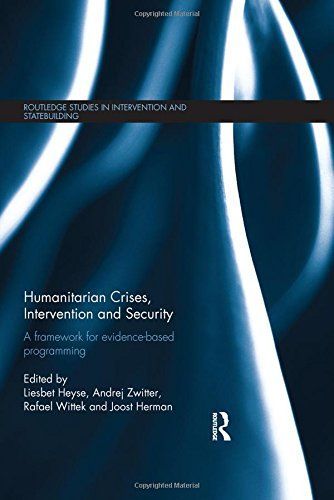
Humanitarian Crises, Intervention and Security A Framework for Evidence-Based Programming
This book presents a new framework of analysis to assess natural and man-made disasters and humanitarian crises, and the feasibility of interventions in these complex emergencies. The past half-century has witnessed a dramatic increase in such crises - such as in Haiti, Iraq and Sudan - and this volume aims to pioneer a theory-based, interdisciplinary framework that can assist students and practitioners in the field to acquire the skills and expertise necessary for evidence-based decision-making and programming in humanitarian action. It has four major objectives: To provide a tool for diagnosing and understanding complex emergencies, and build on the concepts of state security and human security to provide a ‘Snap-Shot Analysis’ of the status quo; To provide a tool for analysing the causes of crises as well as the related stakeholder field; To provide a frame to structure and analyse the information required to evaluate, monitor and/or design interventions for different actors on a project and/or programme level; To combine concepts used in the humanitarian field with underlying theory in a practically relevant way. The book will be of much interest to students of humanitarian intervention, human security, peacebuilding, development studies, peace studies and IR in general.